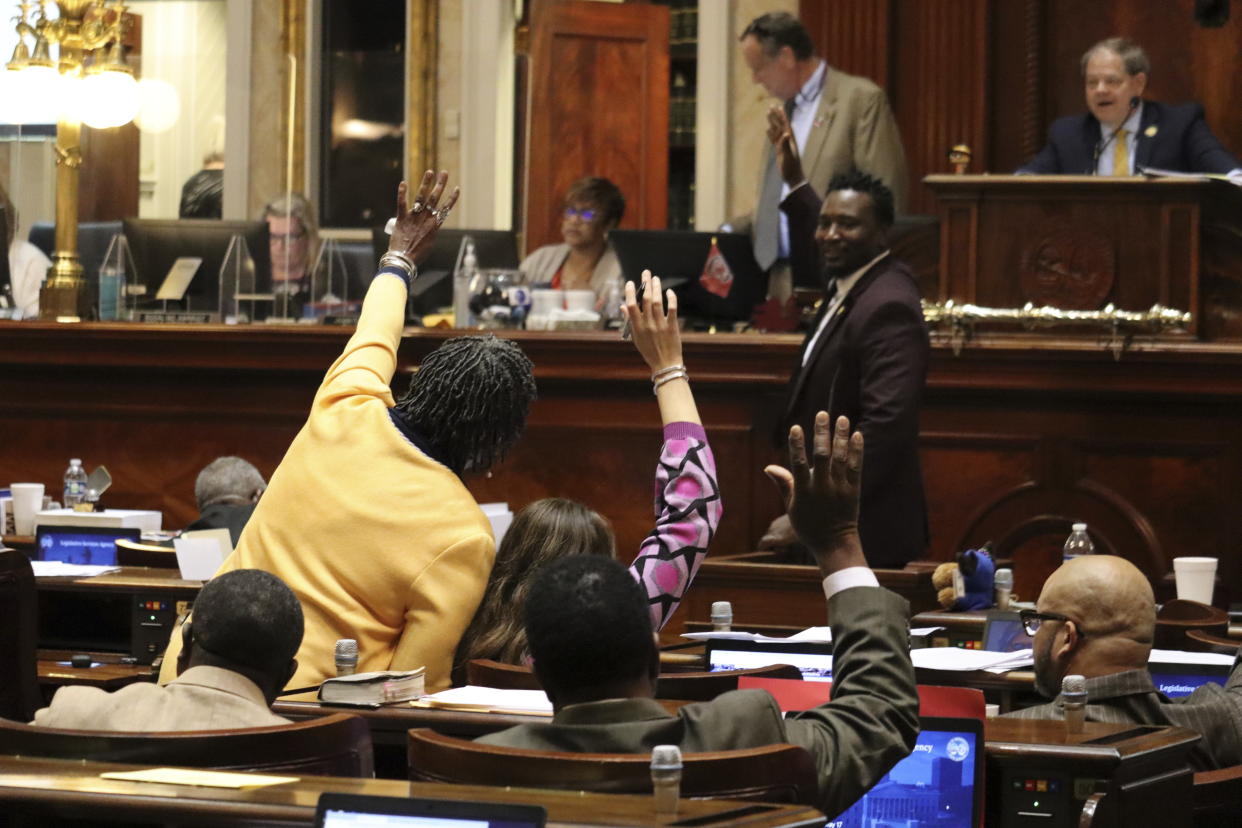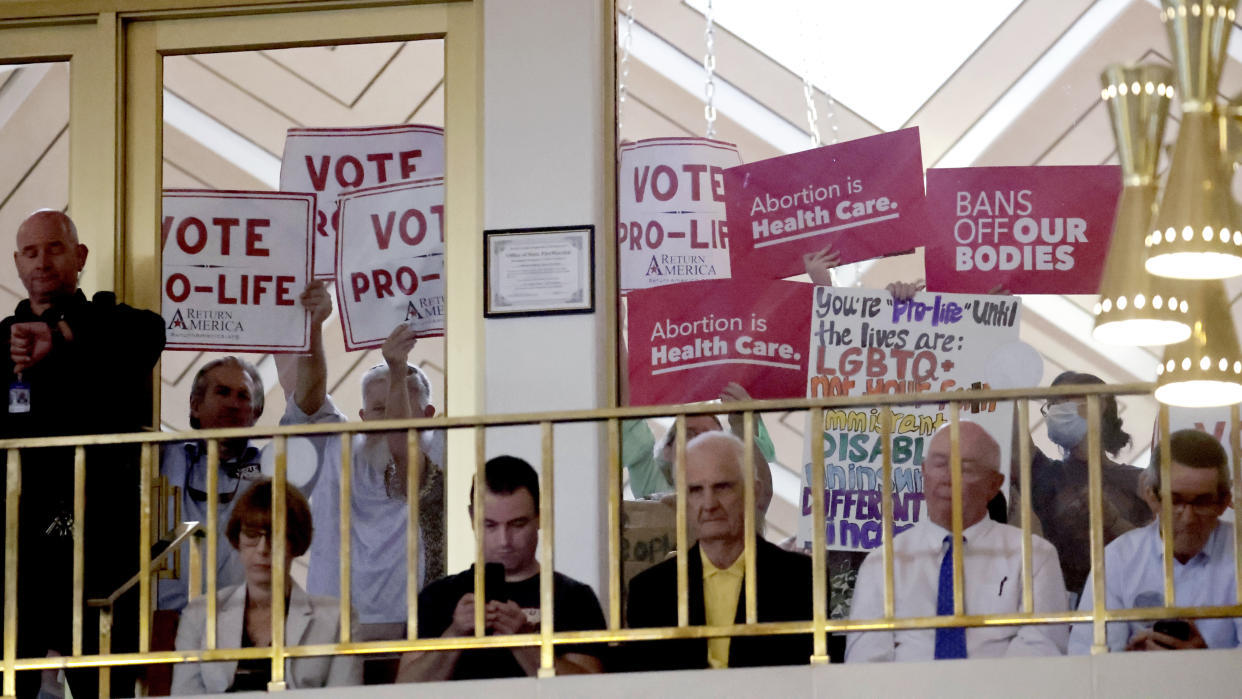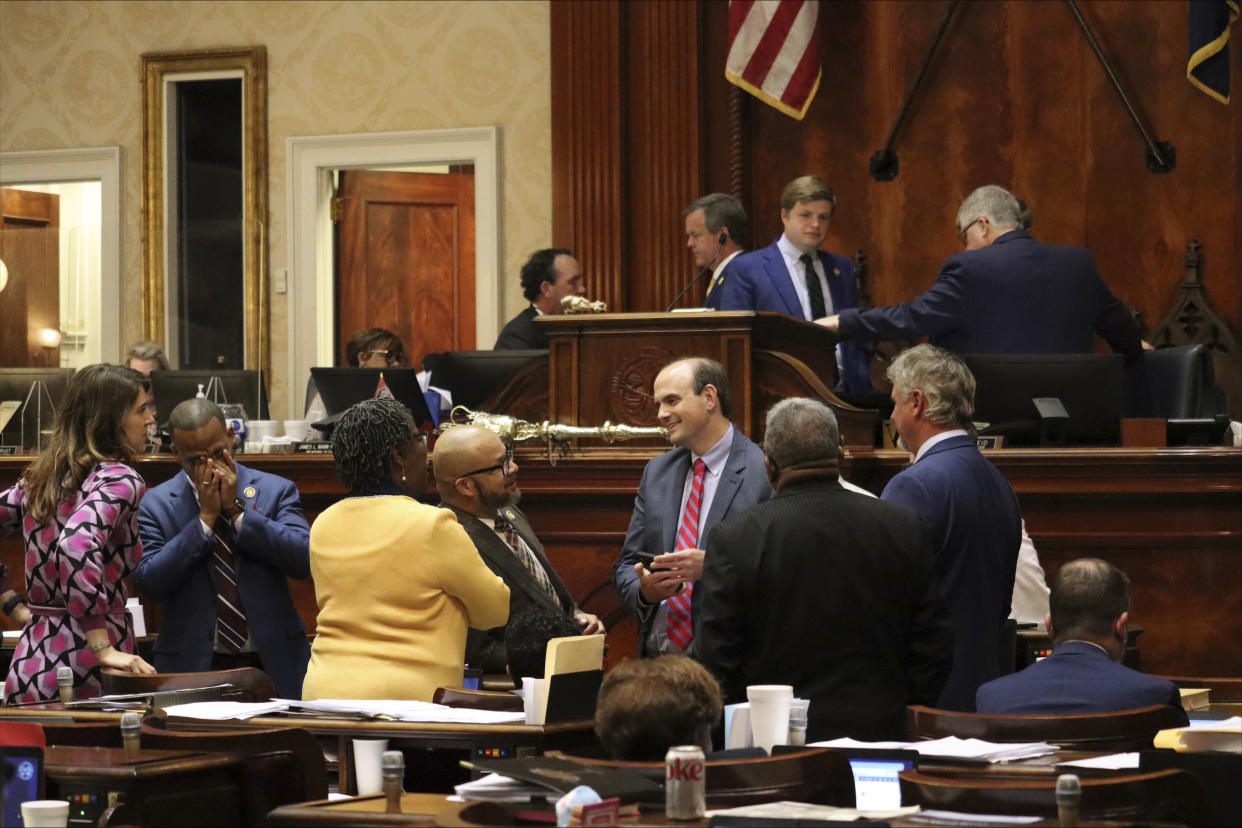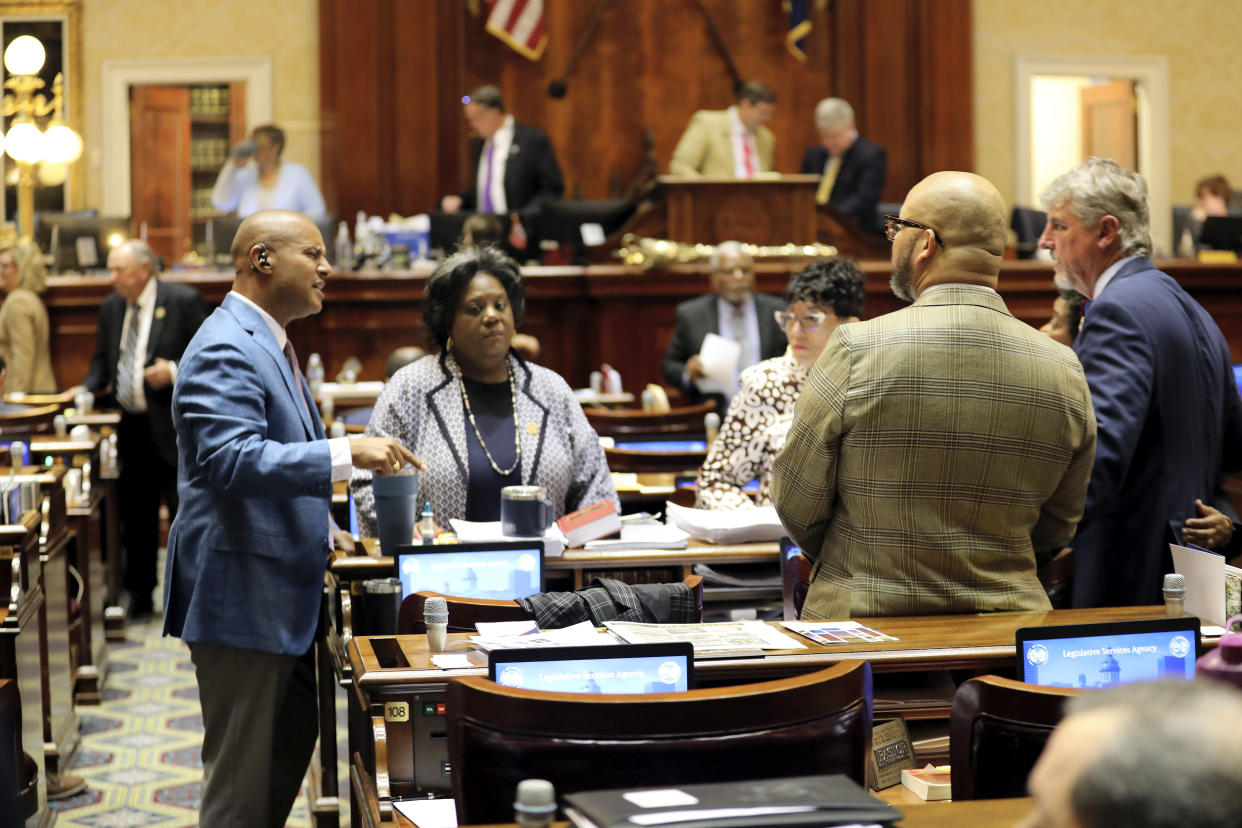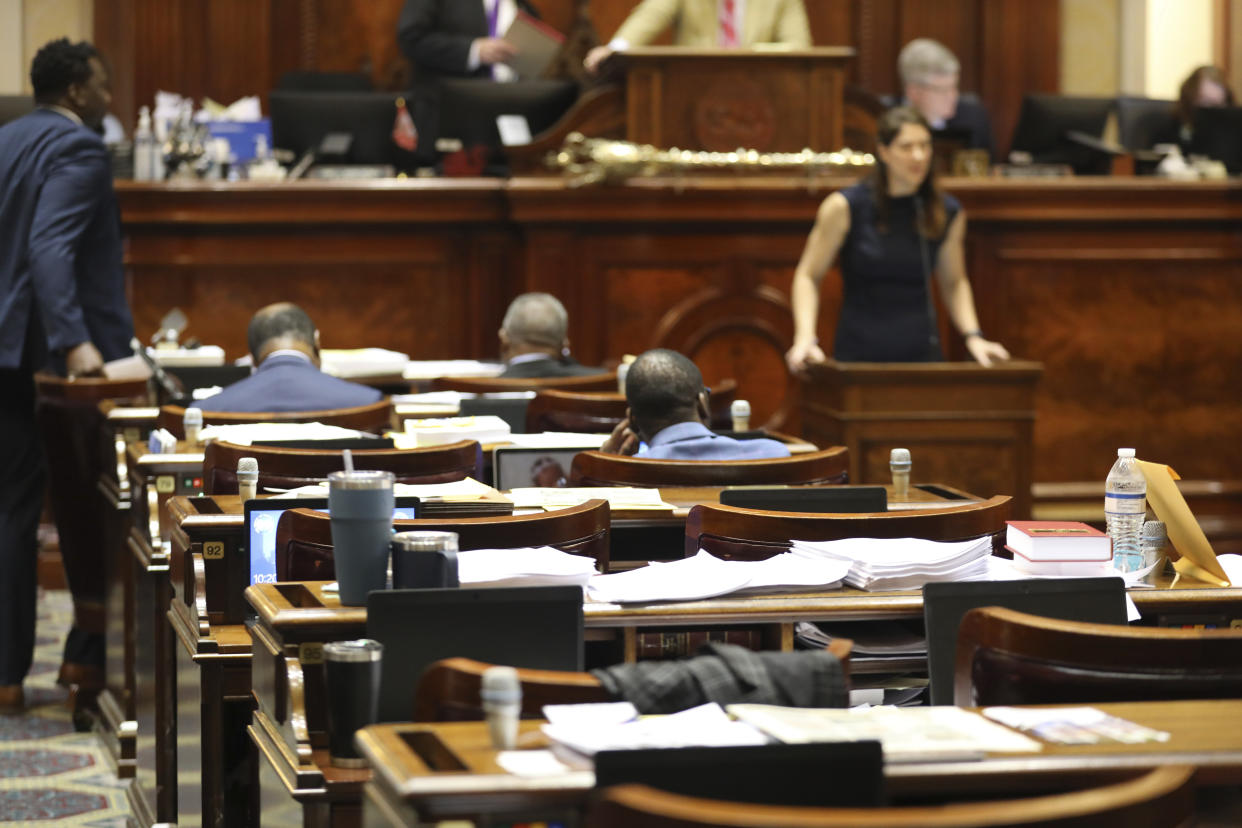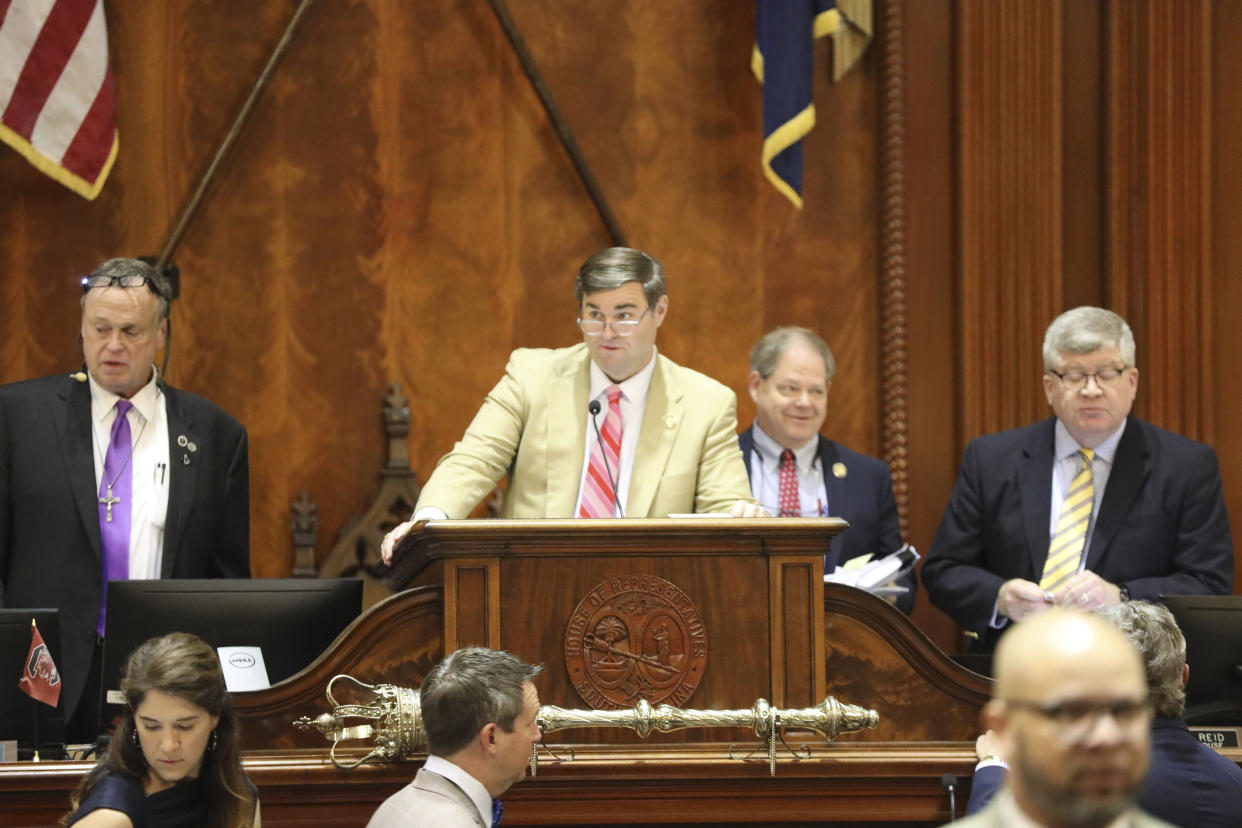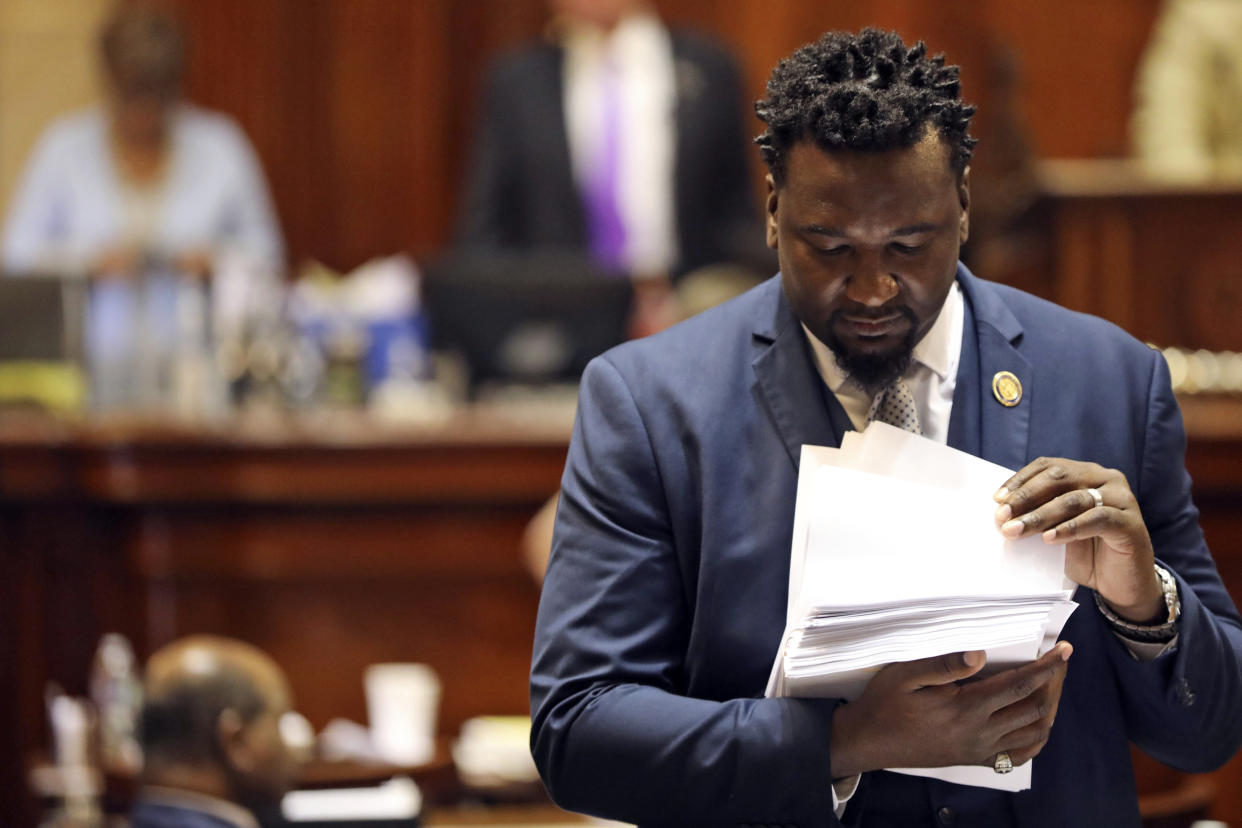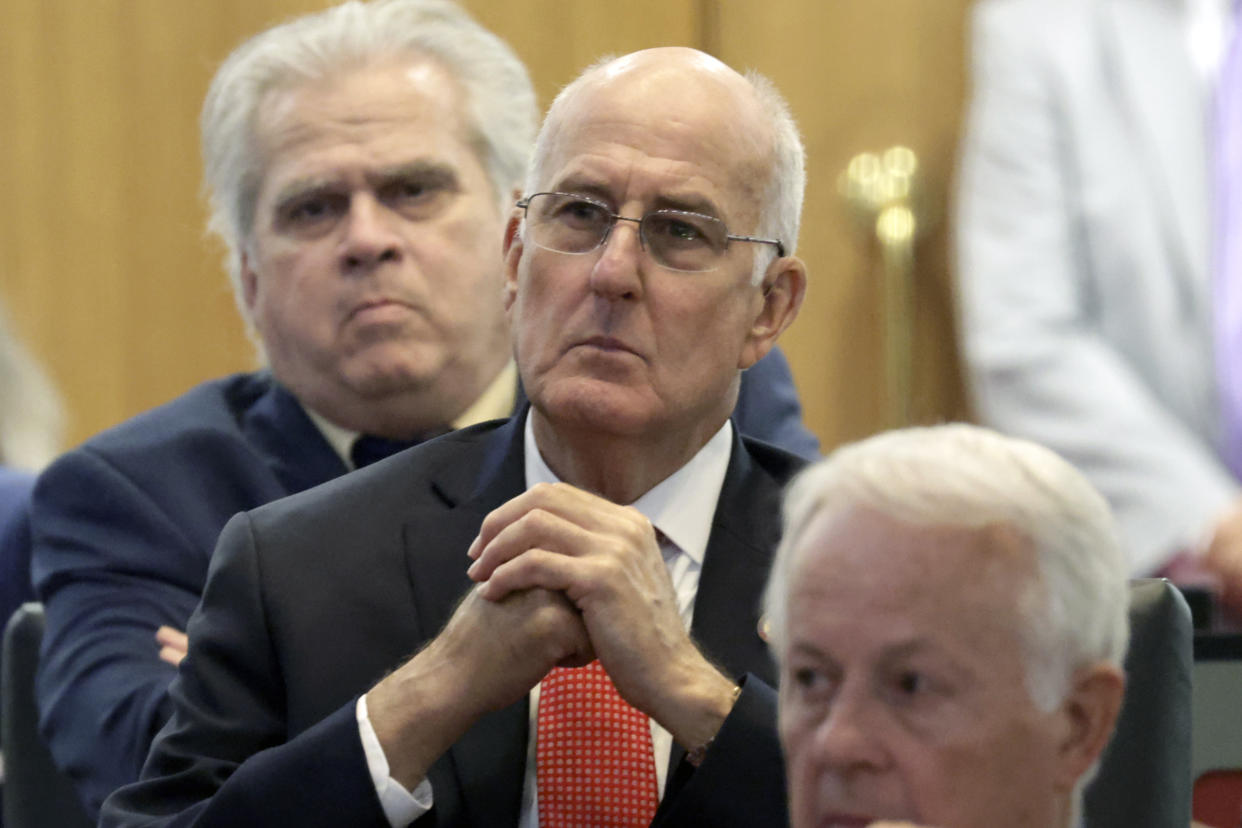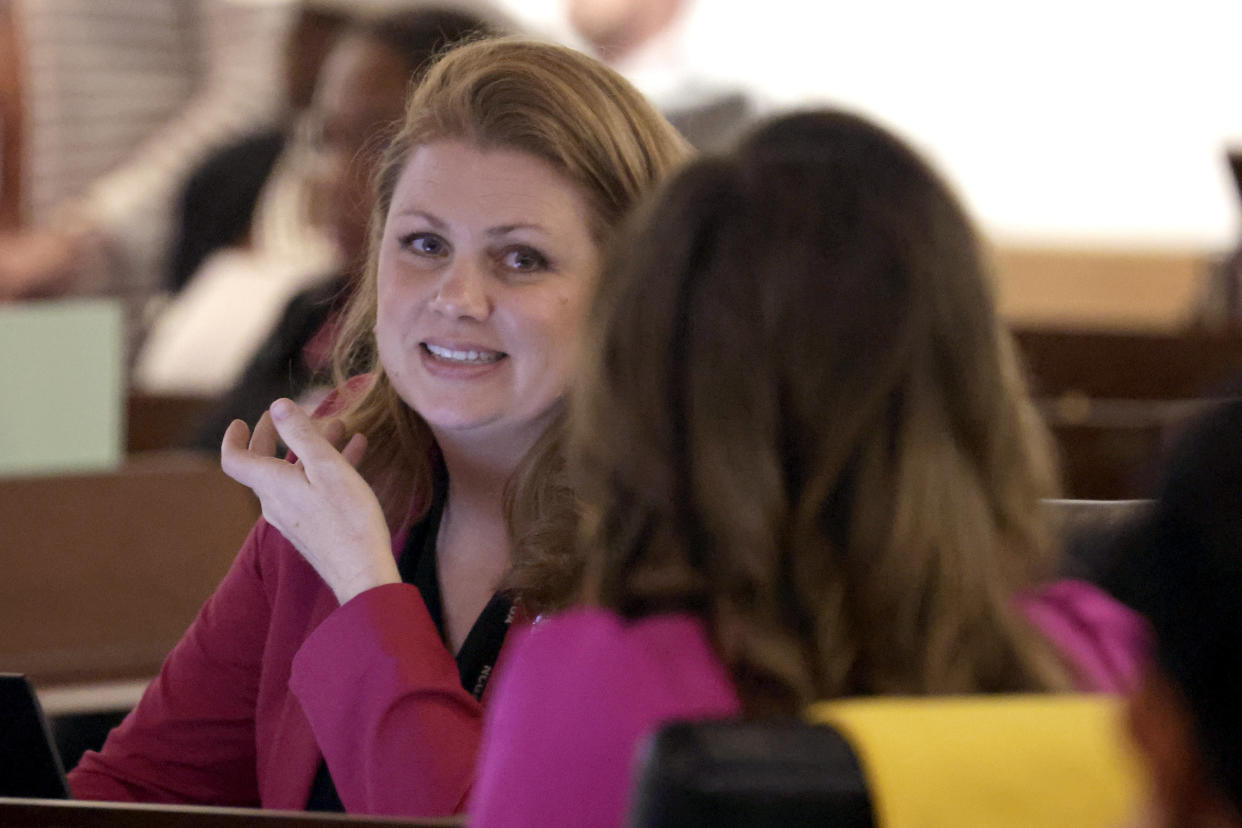Spread of abortion restrictions in South puts pressure on Virginia
RICHMOND, Va. (AP) — As more Southern states pass new restrictions on abortion, Virginia is poised to become an outlier in the region for its relatively permissive laws, setting up the state as a destination for women seeking abortions and raising questions about providers' capacity to meet demand.
South Carolina is among the last bastions in the region for those seeking legal abortions, but that status could end soon. Access would be almost entirely banned after about six weeks of pregnancy — often before women know they’re pregnant — under a bill expected to come up for a vote in the House on Wednesday. The state Senate, which previously rejected a proposal to nearly outlaw abortions, could give final passage next week.
And most abortions after 12 weeks of pregnancy will be banned in North Carolina beginning July 1 after the state’s Republican-controlled Legislature successfully overrode the Democratic governor’s veto late Tuesday.
Abortion is banned or severely restricted in much of the South, including bans throughout pregnancy in Alabama, Arkansas, Kentucky, Louisiana, Mississippi, Oklahoma, Tennessee, Texas and West Virginia. In Georgia, it’s allowed only in the first six weeks.
Such restrictions are possible because the U.S. Supreme Court last year struck down the landmark 1973 Roe v. Wade ruling, which established a nationwide right to abortion.
“It would be just devastating for abortion access in the South,” Jamie Lockhart, executive director of Planned Parenthood Advocates of Virginia, said of the proposed six-week ban in South Carolina, the 12-week ban in North Carolina, and a six-week ban in Florida that will take effect only if the state's current 15-week ban is upheld by the state Supreme Court.
But North Carolina Rep. Sarah Stevens, a Republican, said she sees the 12-week ban and other restrictions in North Carolina's new law as “safeguards,” not obstacles to abortion.
“We seek to balance protecting unborn babies while ensuring the safety of mothers,” she said Tuesday.
Stricter bans across the South would heighten Virginia’s role as an access point and create a “ripple effect” as people travel from out of state to seek care, Lockhart said.
“Despite abortion providers' efforts to increase available appointments and expand access for patients through telemedicine, the dramatic influx in out-of-state patients will lead to longer wait times for people in those access states,” Lockhart said.
Virginia currently allows abortions in the first and second trimesters. An abortion is allowed in the third trimester only if three doctors certify the mother’s mental or physical health is at serious risk.
Virginia Gov. Glenn Youngkin, a Republican, pushed for a 15-week ban during this year’s legislative session, but that was defeated by the narrow Democratic majority in the state Senate.
Victoria Cobb, president of the conservative Family Foundation of Virginia, said Wednesday that the state's laws became out of step with its neighbors’ during years of “liberal influence.”
Virginians “are going to have to work to protect our Commonwealth from being exploited by the abortion industry," Cobb said.
The costs of travel for women who need to go outside their home states for abortions can quickly add up, said Ashlyn Preaux, who helps run an abortion fund in South Carolina.
Abortion remains legal through 22 weeks in South Carolina, and the state had already seen an increasing number of out-of-state patients before Florida and North Carolina enacted new restrictions. Farther west, women often travel to Illinois, Kansas, New Mexico or Colorado.
Provisional state health department data show South Carolina reported nearly 1,000 abortions in each of the first three months this year, after totaling just over 200 in the one full month that a previous six-week ban took effect last year. Nearly half of the patients reportedly came from other states.
Preaux fears the region’s new barriers will increase the burden on South Carolina abortion providers already working to match the need. The state has just three clinics, which she stressed are already limited by regulations that largely block them from providing abortions beyond the first trimester.
Until Tuesday, North Carolina had been considered a safe space, said Dr. Erica Pettigrew, a family medicine doctor in Hillsborough. But now, "North Carolinians will be health care refugees to other states,” she said, also criticizing provisions of the law for potentially creating more paperwork, along with additional medical and licensing requirements.
In Michigan, one of the leading states in protecting abortion rights since Roe v. Wade was overturned, Gov. Gretchen Whitmer signed legislation Wednesday that will prohibit companies from firing or otherwise retaliating against workers for having an abortion.
The legislation amends the state’s civil rights law, which had previously only outlawed employment discrimination if an abortion was to “save the life of the mother.” It will ensure that workers cannot be treated differently for receiving an abortion regardless of reasoning.
___
Kruesi reported from Nashville, Tennessee. Contributing to this report were Associated Press writers Joey Cappelletti in Lansing, Michigan; James Pollard and Jeffrey Collins in Columbia, South Carolina, and Gary Robertson and Hannah Schoenbaum in Raleigh, North Carolina. Schoenbaum and Pollard are corps members for the Associated Press/Report for America Statehouse News Initiative. Report for America is a nonprofit national service program that places journalists in local newsrooms to report on undercovered issues.
